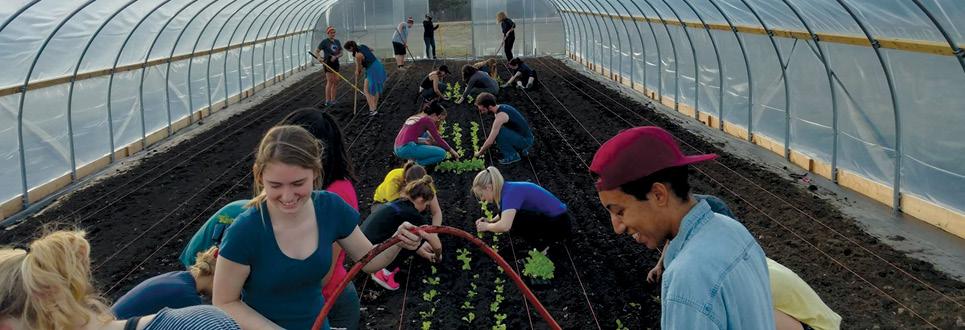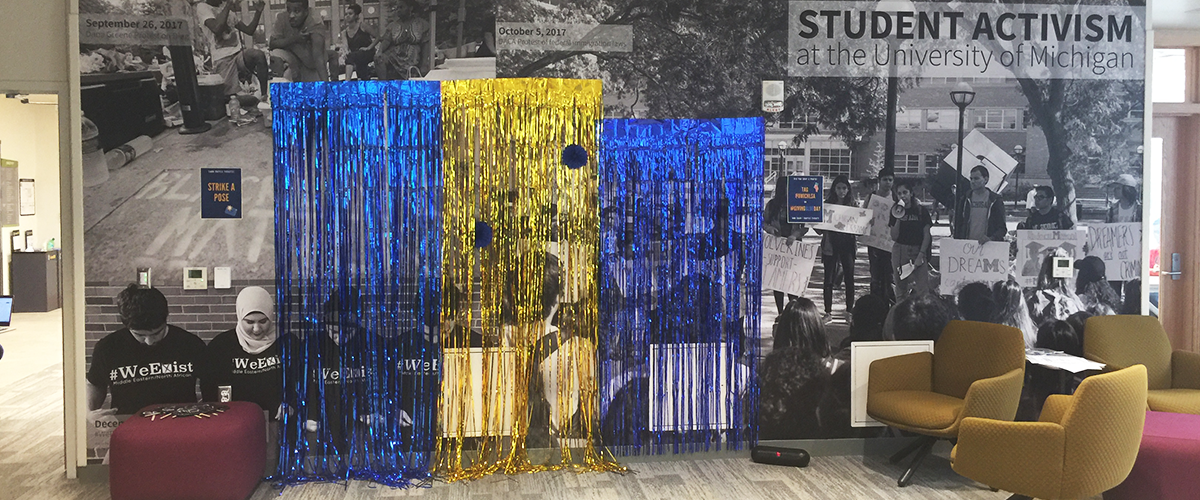Blog
Get the inside scoop about life at U-M and applying to Michigan from current student bloggers, Admissions staff, and guest faculty writers.

Get the inside scoop about life at U-M and applying to Michigan from current student bloggers, Admissions staff, and guest faculty writers.

Many BIPOC students have assumed the additional role of activist, especially amidst increased coverage of racial violence against the Black, Asian, and Pacific Islander communities. But a closer consideration of student-led activism brings to light the consequences of shouldering this extra role for students.

As a student, there’s an unspoken practice of compartmentalization – keeping parts of your life in separate figurative boxes until it’s the right or convenient time (for others) to open it.
I have a lot of boxes. There’s my day-to-day box that I keep at the forefront of my mind – a modge-podge of upcoming school and work assignments, tidbits from conversations I remember having or will soon have, and my inner dialogue reminding me to eat a vegetable or two and to not stress so much.
Then there’s the box of the future I keep at my peripherals – slightly more high-stress items like what my summer plans will look like or where I’ll live next year; things that are important but not worth moving into my day-to-day box. I know eventually these things will resolve themselves on their own.
Lastly, there is the box that I feel expected to keep at the back of my mind at all times or face the repercussions of falling behind academically. It holds all the racist and xenophobic harm that has continued long before and throughout the year-plus pandemic. I’m partially referring to the increased attention toward police brutality against Black folks since last summer, and the continued anti-Asian rhetoric and violence that has been amplified by COVID-19. I’m also talking about the racist events against these communities that have happened in the past and those that will continue to occur.
Unpacking this box requires deliberate care, resilience in the face of continued violence, and above all, it is a continued process that neither the news cycle nor our schedules as students accommodate. The media is quick to move on to the next big story of the day even as we’re still processing what came before; schoolwork and life piles on. But not unpacking it at all has serious and harmful consequences for the Black and Asian communities that we cannot afford to endure.
As a South Asian Muslim woman, I cannot begin to fathom what it has been like to hear about and experience the specifically targeted violence, hate, and racism towards Black and Asian-American and Pacific Islander folks. What I do know is that the expectation of holding the day-to-day happenings of being an undergraduate separate from the lived reality of racism is dangerous to everyone.
The fact of the matter is that while our student schedule goes on with little concern for what is going on in the world, Black Indigenous People of Color (BIPOC) undergraduates students (especially Black and Asian folks) have no choice but to roll up our sleeves and actively work toward change, build in time we don’t have to heal, and in my case as an ally and activist, engage in further learning.
This is how it has always been; U-M has a long history of student-led activism dating back to the 60s and 70s during which Black students assumed most of the burden of social justice activism. It’s thanks to the advocacy of these students, for example, that safe spaces for minorities on campus like the Trotter Multicultural Center exist today.
More recently, with the rise of digital protest amidst the pandemic, U-M student activists have redefined what it looks like to engage in activism in a digital age. But while I am inspired and hopeful by the rapid mobilization of students in response to constant acts of hate, racism, and violence, I worry about the toll this takes on students who are balancing in this work in conjunction with classes and extracurriculars.
I myself constantly grapple with whether to disengage in an effort to catch up with the academic train that never seems to slow down (a privilege I recognize not everyone has) or to continue doing my part in promoting anti-racism (even if it doesn’t feel like enough). And I’ve witnessed over the past few months that my fellow BIPOC peers are justifiably exhausted by constantly being pulled in between the world of student and activist.
I don't have answers or direction. But to these students, I wanted to remind you that you are doing enough, that your work and struggles are infinitely valid, and that there is no time limit to allow yourself to heal.

Maryam Masood (she/her) is a senior in the College of Literature, Science, and the Arts majoring in Organizational Studies. During the year, she keeps busy managing the Michigan Refugee Assistance Program and working as a trainer at Rec Sports. Outside of class and work, she can most likely be found making another cup of coffee, procrastinating at the CCRB, or rewatching Kim's Convenience on Netflix.